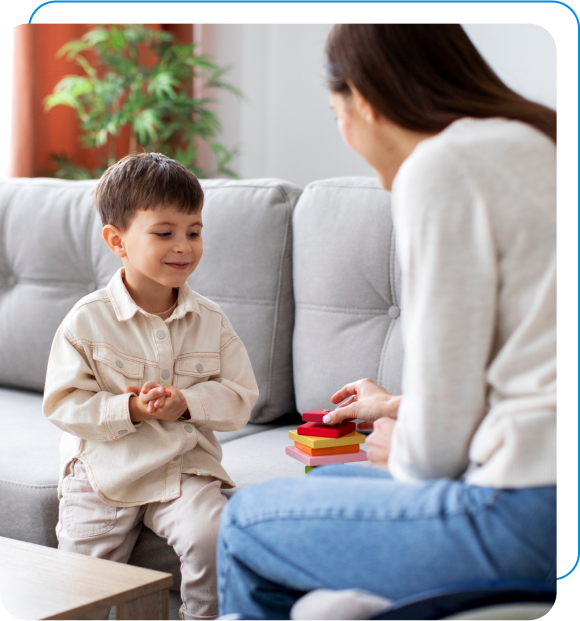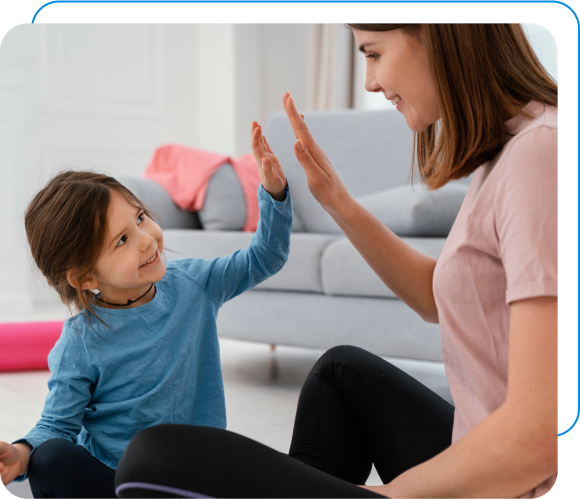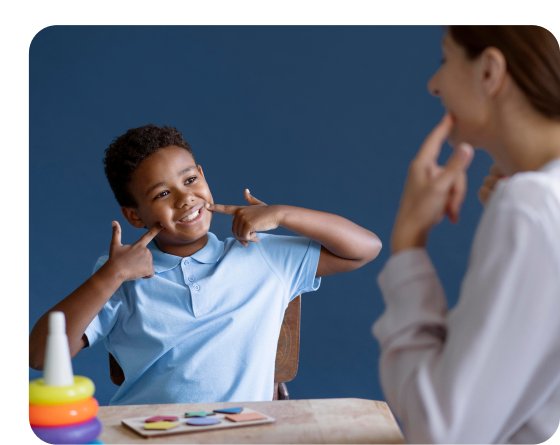Counselling services
Children’s EMDR Therapy

What Is EMDR Therapy for Children?
EMDR (Eye Movement Desensitization and Reprocessing) is a form of therapy that is often proven effective for helping children process and recover from traumatic experiences. The therapy involves using guided eye movements along with cognitive processing to help children address distressing memories.
EMDR therapy is well suited for children because it is non-invasive and allows children to process traumatic memories without having to express them verbally. Additionally, it helps to reduce the intensity of trauma, making it easier for children to cope and heal.
When integrated with play and creative activities, EMDR can make therapy less intimidating for children than other forms of therapy.


The Benefits of EMDR Therapy for Children
Faster Treatment
Compared to traditional talk therapies, EMDR often leads to faster results, providing relief to your child in fewer sessions.
Reduction of Trauma Symptoms
EMDR helps decrease symptoms of PTSD, anxiety, and depression that are caused by traumatic events.
Emotional Regulation
Children experience improved emotional stability and resilience from EMDR by reducing the intensity of traumatic memories.
Improved Behaviour
Children often have better behavior and improved social interactions after EMDR because they feel more secure and less distressed.

Is EMDR Right for Your Child?
In order to assess if EMDR is right for your child, it is important to look at their trauma history, emotional and behavioral symptoms, previous therapy outcomes, and your child’s comfort level with therapy in general.
Children who have experienced significant trauma, such as abuse, accidents, or loss, and exhibit symptoms like anxiety, depression, behavioral issues, or emotional distress are likely good candidates for EMDR Therapy. EMDR is beneficial for children who struggle with processing traumatic memories verbally and may not have responded well to traditional talk therapies.

Our Approach to Children’s EMDR Therapy
At Can’t We Just Get Along Counselling, we believe past traumas don’t have to define your child’s future. Our Calgary-based EMDR psychologists are dedicated to assessing and identifying the most suitable therapy approach for your child, ensuring positive growth and healing.
During our initial meeting, we will discuss your child’s traumatic memories and their impact on their well-being. Our team of highly trained registered psychologists and certified EMDR therapists will work with you to integrate EMDR into your child’s therapy sessions. This approach aims to restore peace and emotional stability in your child’s life.

Get the Help Your Child Needs to Heal From Trauma
Don’t let past trauma dictate your child’s future. At Can’t We Just Get Along Counselling, our experienced EMDR psychologists in Calgary are here to support your child’s journey to recovery. With our tailored approach and compassionate care, we help children process and overcome their traumatic experiences, paving the way for a brighter, healthier future. Contact us today to schedule an initial consultation and take the first step toward healing and resilience for your child.



